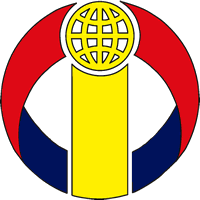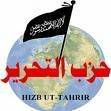''To this end, Turkey’s governments since 2002 implemented bold economic reforms that paved the way for sustainable growth and provided a firewall against the financial crisis that hit in 2008. As a result, in less than a decade, GDP has tripled, making Turkey the world’s 16th largest economy. Moreover, the country benefits from strong public finances, prudent monetary policy, sustainable debt dynamics, a sound banking system, and well-functioning credit markets. At the same time, we expanded the scope of individual rights, which had long been subordinated to security concerns. We streamlined civil-military relations, guaranteed social and cultural rights, and attended to the problems of ethnic and religious minorities. These reforms transformed Turkey into a vibrant democracy and a more stable society, at peace with itself and able to view its external environment in a different light. Quite simply, we stopped viewing our geography and history as a curse or disadvantage. On the contrary, we began to regard our location at the crossroads of Europe, Asia, and the Middle East as an opportunity to interact simultaneously with multiple players. As a result, we began to reach out to countries in our neighborhood and beyond. We tried to expand political dialogue, enhance economic interdependence, and strengthen cultural and social understanding. And, while ten years is too short for a definitive assessment of such an ambitious policy, we have undoubtedly covered considerable ground. For example, we have quadrupled our trade volume just with our neighbors. On several occasions, we have also been instrumental in facilitating peace and reconciliation. But, what is more important, Turkey has become a model of success that many countries around us now seek to emulate. And yet, until a year or two ago, some political pundits were asking, “Who lost Turkey?” or “Whither Turkey?” – the assumption being that Turkey had shifted its foreign-policy axis away from the West. In fact, Turkey’s external orientation has remained constant, because it rests on the values that we share with the free world. What has changed is our increased assertiveness in our efforts to ensure greater stability and human welfare in our region, evident in our advocacy of freedom, democracy, and accountability not only for ourselves, but also for others. -Abdullah Gul http://www.todayszaman.com/newsDetail_getNewsById.action?newsId=281079
PERJUANGAN CINTA MAHASISWA...... CINTA TUHAN - CINTA MANUSIA -CINTA ILMU-CINTA HIKMAH- CINTA keBENARan - CINTA keADILan - CINTA perUBAHan - CINTA penCERAHan
Tuesday, May 29, 2012
Subscribe to:
Post Comments (Atom)












































No comments:
Post a Comment